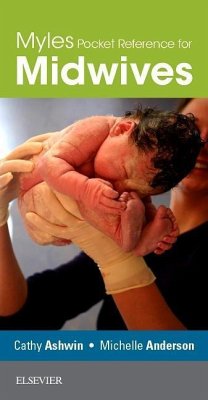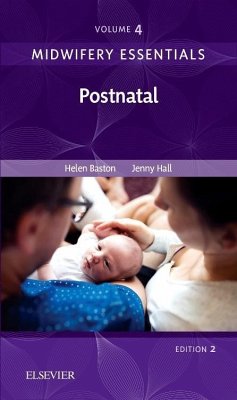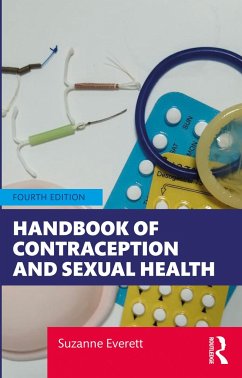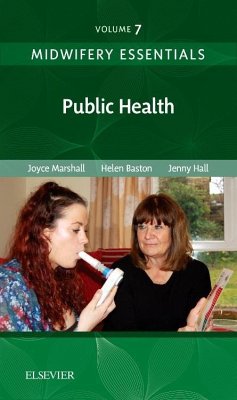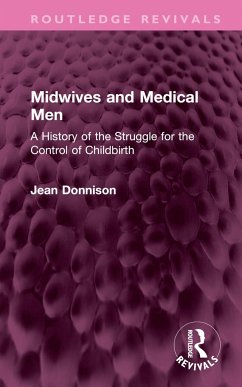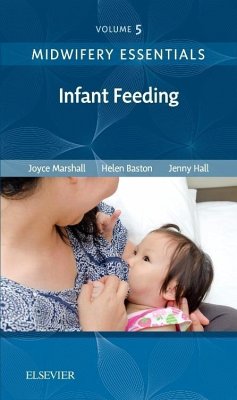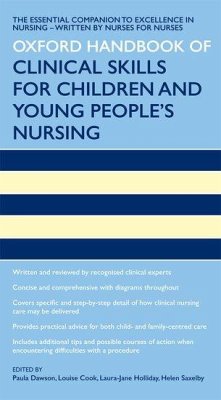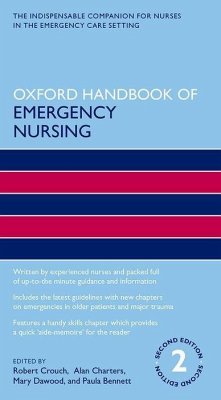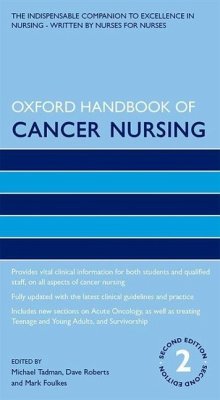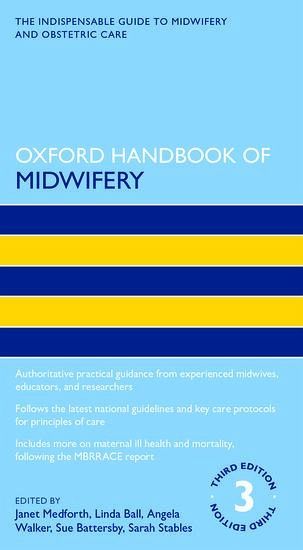
Broschiertes Buch
Oxford Handbook of Midwifery
Versandkostenfrei!
Versandfertig in 2-4 Wochen

PAYBACK Punkte
25 °P sammeln!




This unique and bestselling handbook provides midwives with everything they need for successful practice. It contains concise, practical and expert guidance on all aspects of the midwife's role, from pre-conceptual advice to the final post-natal examination of the mother and baby.
Janet Medforth has obtained both UK registered nurse and registered midwifery qualifications and worked as a clinical midwife for 12 years before moving into education. She has a Bachelor's degree in midwifery education and a Master's degree in health care ethics. Janet has worked in midwifery education for 24 years and has also kept her clinical skills up to date to enable her to teach a number of different midwifery skills including managing obstetric emergencies. She believes that a midwife never stops learning and thereforeshe's recently developed an interest alongside clinical colleagues in Sheffield, in the skills needed to enable safe vaginal breech birth. Having qualified in 1997 Linda Ball has worked in midwifery research and higher education for almost 20 years. She became a Research Fellow at the University of Sheffield (2000-2004) where she explored midwifery attrition for the Department of Health & the Royal College of Midwives (Why do Midwives Leave? 2002). She subsequently became a Senior Research Fellow in the Centre for Health & Social Care Research, Sheffield Hallam University. As a Postgraduate University Teacher at The University of Sheffield, Linda qualified as an NMC accredited midwife teacher in 2010. From 2011 to 2015 she returned to Sheffield Hallam University as a Senior Lecturer in Midwifery. Linda currently works as Lead Research Midwife within Chesterfield NHS Trust, where she manages a number of National Institute of Health Research clinical trials. She continues to feel privileged to be a midwife and still enjoy clinical midwifery practice! Angela Walker has been in nursing and midwifery for 49 years and in midwifery education for almost 40 years, gaining a first degree in Education and a Master's degree in Education Management.SheI was a course leader at both pre and post registration and one of a team to develop and teach on the University's online Masters in Midwifery, launched in 2004. Special interests are contraception, women's health, and sexual health, legal and professional issues. Latterly, co-course leader of the Nurse and Midwife Independent Prescribing Programme at the University of Sheffield and clinical nurse practitioner in Contraception and Sexual Health with a full range of advanced skills. Angela finally retired May 2016. Sue Battersby is an independent midwifery researcher/lecturer and prior to this she was a Midwifery lecturer at the University of Sheffield. Her background is in nursing and midwifery both in England and the Middle East and she worked in hospitals and the community. Sue's interest in infant feeding commenced in 1989 when she established the first Sheffield Infant feeding Initiative. She has researched both breastfeeding and formula feeding and has a PhD which explored midwives experiences of breastfeeding. She has published widely on issues related to infant feeding and her work was used by the NICE Maternal and Child nutrition programme. She was member of the Sheffield Infant and Maternal Nutrition group and also a member of the NICE Topic Advisory Group for Breastfeeding peer support. Sarah Stables has been a practicing midwife since 2004 and for the last two years she has also been a Supervisor of Midwives. During her time as a rotational clinical midwife, the main focus of her interest and enjoyment from midwifery has been to give care to women in labour. In 2011 she became the lead midwife of the award winning antenatal ward at Barnsley Hospital. Later in 2014 Sarah joined the midwifery team at Sheffield Hallam University and has become a senior lecturer in midwifery. She continues to have the privilege of working clinically within the Barnsley Birthing Centre in which women continually amaze her with their strength and courage. In 2015 Sarah won the Royal College of Midwives award for innovation with the development of Wardbook which continues to evolve and develop with her role as a lecturer. She has a special interest in social media and its positive uses within healthcare.
Produktdetails
- Oxford Handbooks in Nursing
- Verlag: Oxford University Press
- 3 Revised edition
- Seitenzahl: 880
- Erscheinungstermin: 9. Mai 2017
- Englisch
- Abmessung: 184mm x 103mm x 40mm
- Gewicht: 414g
- ISBN-13: 9780198754787
- ISBN-10: 0198754787
- Artikelnr.: 47736098
Herstellerkennzeichnung
Libri GmbH
Europaallee 1
36244 Bad Hersfeld
gpsr@libri.de
Für dieses Produkt wurde noch keine Bewertung abgegeben. Wir würden uns sehr freuen, wenn du die erste Bewertung schreibst!
Eine Bewertung schreiben
Eine Bewertung schreiben
Andere Kunden interessierten sich für



